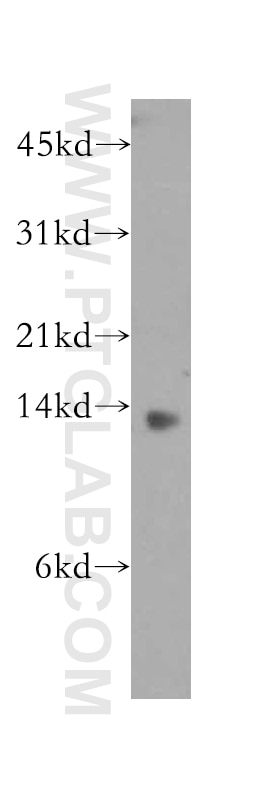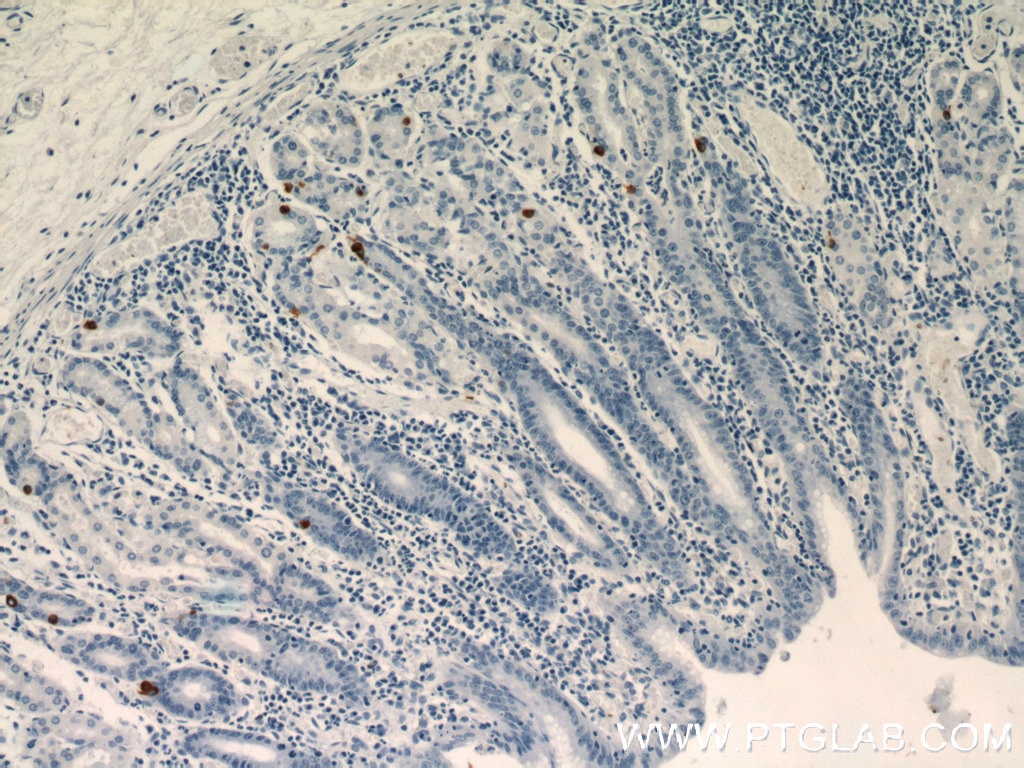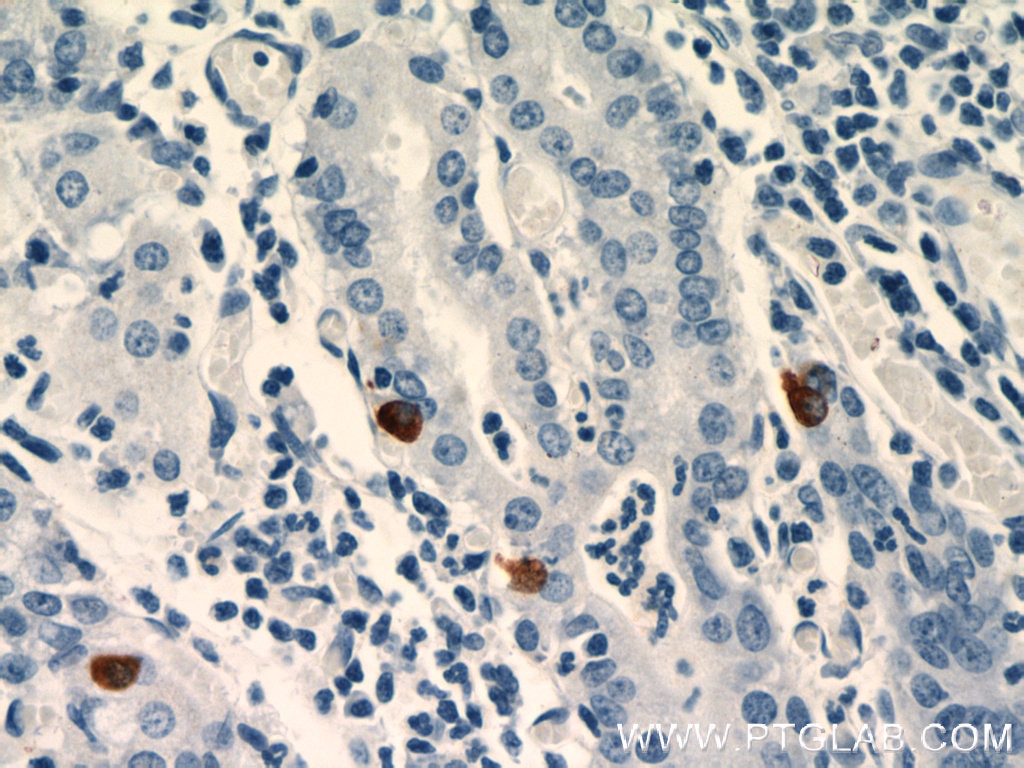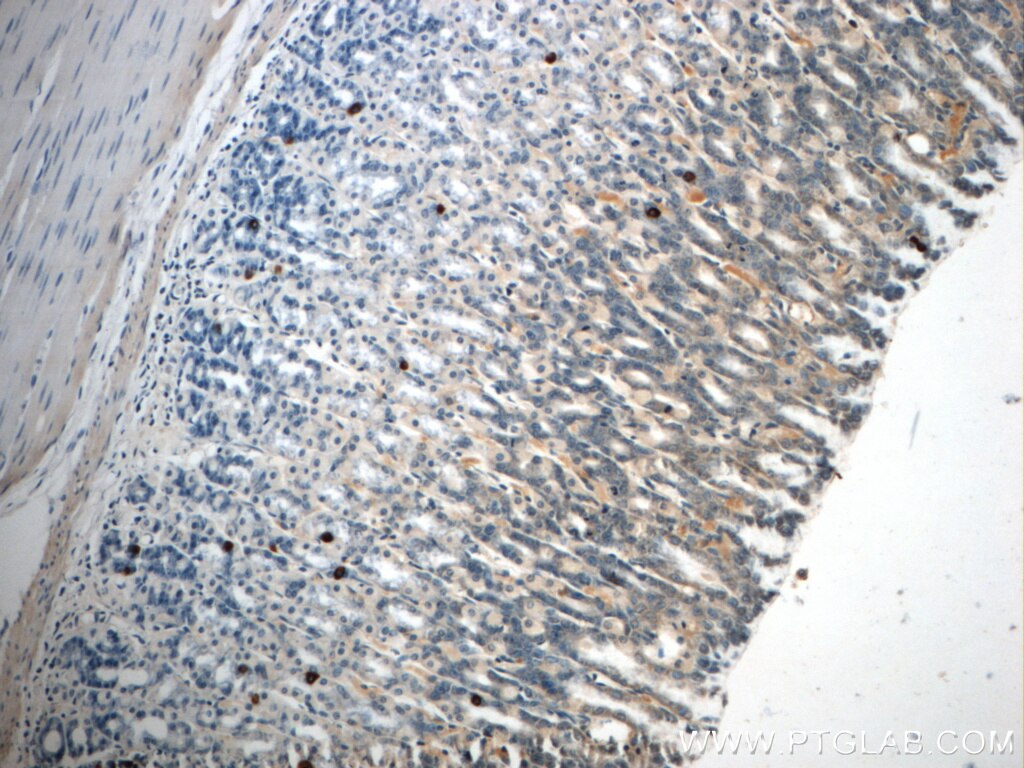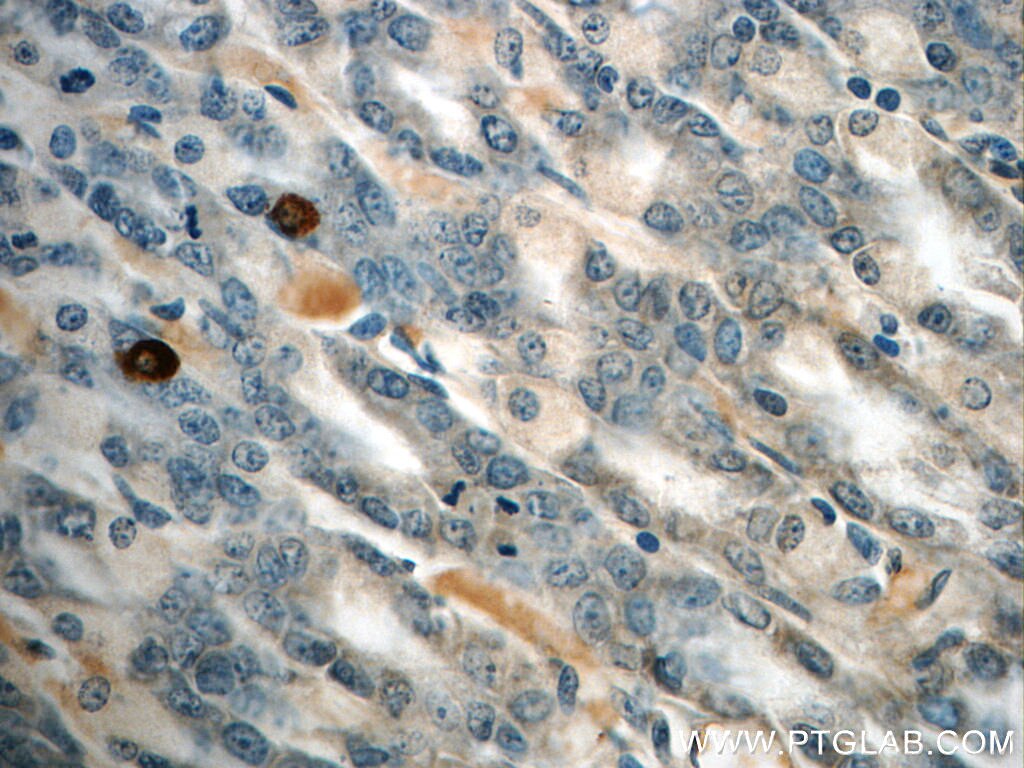Anticorps Polyclonal de lapin anti-GHRL
GHRL Polyclonal Antibody for WB, IHC, ELISA
Hôte / Isotype
Lapin / IgG
Réactivité testée
Humain, rat, souris
Applications
WB, IHC, ELISA
Conjugaison
Non conjugué
N° de cat : 13309-1-AP
Synonymes
Galerie de données de validation
Applications testées
| Résultats positifs en WB | tissu d'estomac humain |
| Résultats positifs en IHC | tissu d'estomac humain, tissu d'estomac de rat il est suggéré de démasquer l'antigène avec un tampon de TE buffer pH 9.0; (*) À défaut, 'le démasquage de l'antigène peut être 'effectué avec un tampon citrate pH 6,0. |
Dilution recommandée
| Application | Dilution |
|---|---|
| Western Blot (WB) | WB : 1:200-1:1000 |
| Immunohistochimie (IHC) | IHC : 1:200-1:800 |
| It is recommended that this reagent should be titrated in each testing system to obtain optimal results. | |
| Sample-dependent, check data in validation data gallery | |
Applications publiées
| WB | See 3 publications below |
| IHC | See 2 publications below |
Informations sur le produit
13309-1-AP cible GHRL dans les applications de WB, IHC, ELISA et montre une réactivité avec des échantillons Humain, rat, souris
| Réactivité | Humain, rat, souris |
| Réactivité citée | rat, Humain, souris |
| Hôte / Isotype | Lapin / IgG |
| Clonalité | Polyclonal |
| Type | Anticorps |
| Immunogène | GHRL Protéine recombinante Ag4141 |
| Nom complet | ghrelin/obestatin prepropeptide |
| Masse moléculaire calculée | 117 aa, 13 kDa |
| Poids moléculaire observé | 13 kDa |
| Numéro d’acquisition GenBank | BC025791 |
| Symbole du gène | GHRL |
| Identification du gène (NCBI) | 51738 |
| Conjugaison | Non conjugué |
| Forme | Liquide |
| Méthode de purification | Purification par affinité contre l'antigène |
| Tampon de stockage | PBS avec azoture de sodium à 0,02 % et glycérol à 50 % pH 7,3 |
| Conditions de stockage | Stocker à -20°C. Stable pendant un an après l'expédition. L'aliquotage n'est pas nécessaire pour le stockage à -20oC Les 20ul contiennent 0,1% de BSA. |
Informations générales
GHRL encodes ghrelin-obestatin preproprotein, which generates ghrelin and obestatin. Ghrelin is predominantly produced in endocrine cells in the gastric mucosa, called X/A-like or ghrelin cells, from where it is secreted into the plasma. In the pituitary gland, ghrelin stimulates GH release and regulates food intake and energy metabolism. Obestatin was initially reported to be an endogenous ligand for the orphan G protein-coupled receptor GPR39 and was involved in satiety and decreased food intake; however, these findings are controversial. Recent reports show that obestatin is involved in inhibiting thirst and anxiety, improving memory, regulating sleep, affecting cell proliferation, and increasing the secretion of pancreatic juice enzymes.
Protocole
| Product Specific Protocols | |
|---|---|
| WB protocol for GHRL antibody 13309-1-AP | Download protocol |
| IHC protocol for GHRL antibody 13309-1-AP | Download protocol |
| Standard Protocols | |
|---|---|
| Click here to view our Standard Protocols |
Publications
| Species | Application | Title |
|---|---|---|
Phytomedicine Differential effect of polysaccharide and nonpolysaccharide components in Sijunzi decoction on spleen deficiency syndrome and their mechanisms. | ||
Pancreas Effects of Ghrelin miRNA on Inflammation and Calcium Pathway in Pancreatic Acinar Cells of Acute Pancreatitis | ||
Biosci Rep Differential expression of ghrelin and GHSR via the mTOR pathway during the dynamic carcinogenic process involving oral, potentially malignant disorders. | ||
Neuroreport Expression of ghrelin or growth hormone secretagogue receptor in the brain of postpartum stress mice. | ||
Hepatobiliary Pancreat Dis Int Ghrelin inhibits IKKβ/NF-κB activation and reduces pro-inflammatory cytokine production in pancreatic acinar AR42J cells treated with cerulein. |
